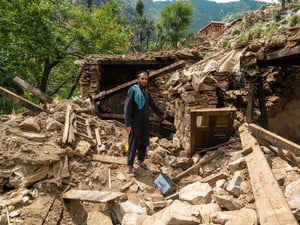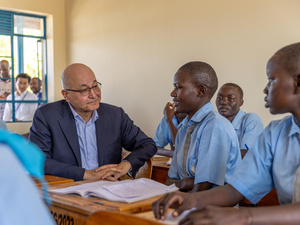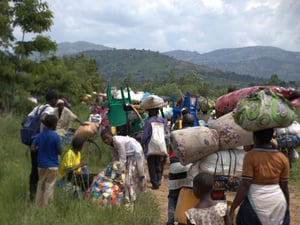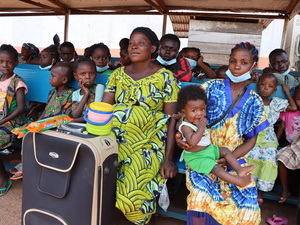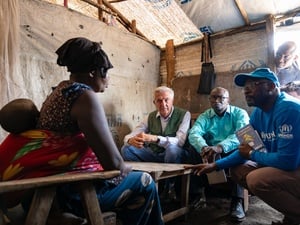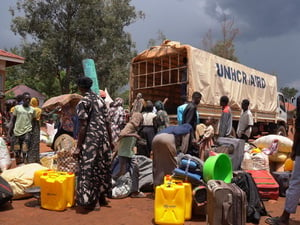UNHCR ends Congolese returns from Zambia, reopens Burundi axis
UNHCR ends Congolese returns from Zambia, reopens Burundi axis
UNHCR is this week closing the last remaining camps for Congolese refugees in Zambia following the departure on Wednesday of the final repatriation convoy for the Democratic Republic of the Congo (DRC). The closure of the two camps, Kala and Mwange, is a landmark for us in that it marks the end of our Congolese voluntary repatriation programme from Zambia. Repatriations of Congolese refugees from all other neighbouring countries are continuing
Wednesday's convoy left Kala camp carrying 131 refugees, the last of 47,000 we have helped to return to DRC over the past four years. Most of those on board were headed for Katanga province in southwestern DRC, where UNHCR and its partners implement projects helping reintegration, mainly through skills-training and the provision of micro-credit schemes. The last convoy from Mwange camp left a month ago.
The returnees spent their first day in a reception centre where they received mine awareness training, information about HIV/AIDS and where necessary medical assistance. Before leaving to their villages they are being provided with food, a construction kit for rehabilitation of homes, blankets, soap, kitchen sets and other household items. Later, they will receive seeds and farming tools to support their livelihoods.
Some 2,000 other refugees, who did not want to return, have been transferred to the Meheba settlement in Zambia's northwest. Unlike Kala and Mwange camps, Meheba has a lot more land, allowing refugees to grow crops and become self-reliant. UNHCR will facilitate the repatriation of those who eventually opt to return to the DRC on an individual basis. The 15,000 people presently living at the Meheba settlement come from Angola, Burundi, the Democratic Republic of Congo, Rwanda, Somalia and Uganda.
UNHCR will now hand over to the Zambian authorities the facilities at Kala and Mwange - the office buildings, staff accommodation, guesthouses, schools, clinics, and water points. These facilities, which are worth some US$ 800,000, will continue to be of service to the Zambian authorities and the local population. Local communities have for some time been able to access social services and health care provided by clinics in the two camps. In addition to setting up water systems in the camps, UNHCR sank boreholes in villages surrounding Mwange and Kala camps to help the local Zambian population.
Civil war in the DRC left more than five million dead and forced millions into displacement between 1998 and 2004. Of those Congolese who became refugees in surrounding countries, tens of thousands found shelter in Zambia. At the height of the crisis in 2004 Zambia hosted some 66,000 Congolese refugees in five camps.
In another country that has hosted Congolese, Burundi, UNHCR yesterday resumed organized repatriations after a more than three-year suspension. The returns were halted in mid-2007 because of fighting in DRC's South Kivu province. Yesterday's convoy carried 173 people from Gasorwe camp in northern Burundi
Upon return they receive three months food rations, blankets, shelter materials, kitchen sets and other household items, mosquito nets, seeds and tools. The operation is closely coordinated with the Congolese government's Programme for Stabilisation and Reconstruction.
We are scheduling weekly repatriation convoys from Burundi to South Kivu, each returning some 200 refugees. Before the end of the year, we hope to facilitate the return of some 2,000 Congolese refugees from Burundi and another 10,000 during 2011. In total there are some 40,000 Congolese refugees and asylum seekers in Burundi, living in three camps and in the capital Bujumbura. Most are from DRC's Uvira, Fizi, Rusizi plain and Mid-Plateux in South Kivu.
Overall, 212,000 Congolese nationals have returned home from surrounding countries since 2004, however some 430,000 remain as refugees, mostly in the Republic of Congo, Uganda, Tanzania, Rwanda and Burundi.


